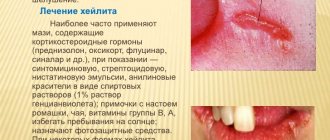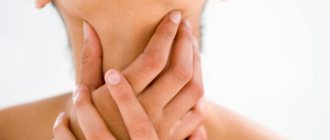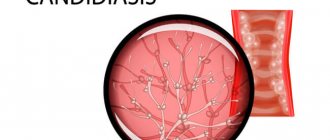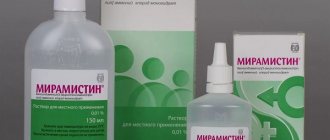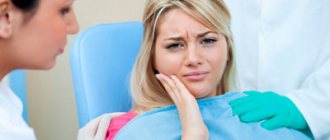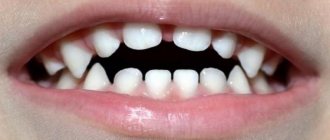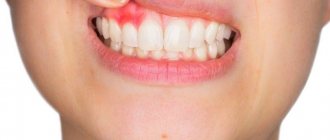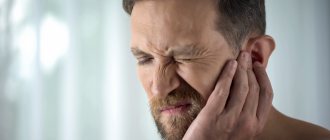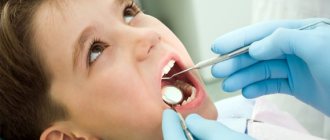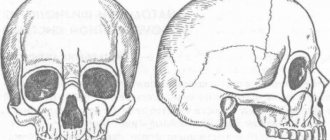Prices for services
Initial appointment with a proctologist (assessment of patient complaints, medical history, external examination of the anus, digital examination of the rectum, anoscopy if indicated)
Primary appointment – visiting a doctor of a specific specialty for the first time. Make an appointment
1500 ₽
Repeated appointment with the proctologist
Make an appointment
700 ₽
Severe itching and burning in the anus are characteristic of the following diseases and conditions:
- internal and external hemorrhoids, proctitis, paraproctitis;
- genital warts in the perianal region and rectal mucosa;
- acute and chronic anal fissure;
- fistula tracts in the anus;
- failure of the anal sphincter and involuntary contact of rectal contents with the skin of the perianal area;
- perianal dermatitis;
- inflammatory bowel diseases (ulcerative colitis, Crohn's disease, etc.);
- dermatological diseases (psoriasis, eczema);
Objective grounds
Itching is a sensation accompanied by the need to scratch the skin. There are several opinions about its occurrence:
- irritation of certain pain receptors;
- occurs independently under the influence of mediators - histamine, serotonin, adrenaline, opioids and others.
The second theory is supported by the fact that itching sensations appear only in the superficial layers of the dermis and the mucous membranes adjacent to it, while pain occurs anywhere in the body. In addition, pain and itching can occur in isolation from each other.
Itching can be localized or spread throughout the body. Due to its occurrence, it is divided into:
- propriocevtive - appears due to a violation of the structure of the dermis;
- neuropathic – observed when the nervous system is damaged;
- neurogenic – without damage to the NS;
- psychogenic – mental disorders.
All types of symptoms differ in intensity, duration and place of occurrence.
Itching of the skin of the body often has objective causes and accompanies any disease. First of all, these include skin diseases :
| Type of disease | Cause | Why does it itch? | Localization of sensations |
| Dermatitis | Nervous stress, exposure to cold, allergens | Small rashes, peeling of the dermis. | Any part of the body |
| Dermatophytosis | Fungus | The vital activity of fungi in the upper layers of the skin | Scalp, smooth skin |
| Lichen | Fungi and viruses against the background of reduced immunity | Peeling of the epidermis | Scalp |
| Pediculosis | Lice | Parasite bite | Head, pubis |
| Psoriasis | It is not completely clear. Presumably: low immunity, heredity, infections | Dry, scaly rashes | Elbows, head, lower back, genital mucosa |
| Scabies | Mite | Parasite bite and blisters. Accompanied by severe itching, which intensifies in the evening | Interdigital area |
| Xerosis | Infections, hepatitis, liver cirrhosis, kidney disease | Coarsening and peeling of the skin | Any parts of the body |
| Neurodermatitis | Stress, allergies, hormonal and digestive disorders | Damage to the top layer of skin | Neck, skin folds, bends of knees, elbows |
Another skin condition that causes "scabies" is eczema . It is believed that it occurs against the background of reduced immunity. It can be triggered by stress, nervous tension, as well as hormonal imbalances and allergic reactions.
Eczema is characterized by the formation of foci of rashes in the form of “wet” blisters and pimples, and in some cases dry ones. The itching in this condition is simply unbearable; it is the main symptom of the pathology. The elements are localized on the neck, head, flexor surfaces of the elbows, ankles and knees.
The skin may itch if there are diseases of the internal organs :
- Kidney - a symptom manifests itself on the skin and in the genital area.
- Liver - spreads to the face and hands, while the skin turns yellow.
- Thyroid – dry, flaky and itchy skin on the hands and face.
- Anemia.
- Diabetes – the skin and mucous membranes of the genital organs begin to itch due to increased blood glucose levels.
- Oncological diseases.
- Hormonal disorders - menopause, pregnancy, menstrual syndrome.
- Viral infections - herpes, AIDS.
- Dehydration.
Primary and secondary anal itching
Anal itching can be primary or secondary. Secondary anal itching is a symptom of diseases such as anal fissure, hemorrhoids, helminthic infestations, anal sphincter insufficiency, proctosigmoiditis, intestinal disorders (constipation, diarrhea), genital inflammation, skin fungus in the sacrococcygeal region, exposure to allergens. Anal itching may indicate hidden diabetes. The causes of primary anal itching, which experts also call true, are not fully known.
Having pain in your vagina?
If you have unpleasant, painful sensations in the vagina, diagnosing yourself, let alone taking measures, prescribing treatment is very dangerous. You need to urgently undergo examination by a gynecologist. Often, all sorts of folk remedies will not only not improve the situation, but will even worsen it .
Only a doctor can carry out the necessary tests and, based on them, make an accurate diagnosis and prescribe treatment.
Before being examined by a doctor, you should not douche, use suppositories or other medications. After using them, the test results will be incorrect and it will be difficult to choose the right treatment.
Acute and chronic anal itching
There are acute and chronic primary anal itching, and the form of the disease is also its stage. Anal itching in acute form begins suddenly, has a constant course and strength, the skin in the areas of itching becomes moisturized, traces of scratching and an increase in perianal folds are observed. Chronic itching, on the contrary, is characterized by a slow onset, the skin of the perianal area is dry, thin, has altered pigmentation, scratch marks are absent or look like thin linear abrasions, skin folds are poorly defined.
Itching and burning in the anus in women
Anal itching and burning in women, in addition to causes characteristic of both sexes, can be caused by gynecological diseases: candidiasis, vaginitis, hormonal disorders while taking combined oral contraceptives, menopausal changes, atrophy of the vaginal mucosa, inflammation of the glands of the vestibule of the vagina, etc.
The presence of the above symptoms in women is often a consequence of pregnancy and childbirth due to the occurrence of postpartum hemorrhoids and anal fissures; is further complicated by the fact that intestinal motility in the “weaker” sex is less pronounced than in men, as a result of which women more often suffer from constipation and irregular bowel movements.
Make an appointment
Physiology of urine output
Urination is necessary to remove unnecessary metabolic products and harmful chemical compounds from the body.
Urine itself is formed in the kidney tissue as a result of blood filtration: nephrons successively remove ballast substances from the blood vessels and return necessary components, such as proteins and salts, to the bloodstream. More than one hundred liters of primary urine can be formed per day, but as a result of final filtration, 800-1500 milliliters of liquid per day are removed from the body. The excretory fluid formed in the kidneys penetrates into other parts of the excretory system for accumulation and gradual removal from the body. Approximately 500 ml of urine can be deposited in the bladder, and a person begins to feel the need to urinate when a quarter of the organ’s volume is filled. The signal received from the brain relaxes the sphincter and promotes the removal of fluid from the body through the urethra. In men, part of the urethra passes through the prostate gland, so prostate pathologies can cause dysuria.
Diagnostics
The choice of diagnostic research methods depends on the nature of the disease and the presence of additional symptoms in the patient. Timely consultation with a coloproctologist to determine the cause of itching and burning and make a diagnosis - preventing possible complications. To diagnose itching and burning in the anus, various instrumental and laboratory research methods are used.
- Collecting complaints from the patient and compiling a medical history to clarify information about the nature of itching and burning, duration, intensity, relationship with eating disorders and other factors.
- External examination of the perianal area: assessment of signs of inflammation, the presence of scratches, abrasions, cracks, and any formations.
- Scraping material from the perineum for analysis of helminthiasis and helminthic infestation.
- Internal digital rectal examination.
- Anoscopy.
- If any symptoms from the gastrointestinal tract are detected: bacteriological analysis of stool, sigmoidoscopy, irrigoscopy, fibrocolonoscopy; for complaints of abnormal stool, abdominal pain - fibrogastroduodenoscopy and ultrasound of the abdominal cavity.
- In case of functional insufficiency of the anal sphincter, sphincteromanometry is performed.
When consulting a woman with complaints of itching and burning in the anus, a consultation with a gynecologist may be recommended to rule out diseases of the genitourinary system.
When a man comes to you with symptoms in the form of anal itching and burning, it is possible to consult a urologist and conduct a differential diagnosis.
How to get rid of unpleasant symptoms
Both before diagnosis and during treatment, you can rinse your nose with preparations based on sea water or use drops with silver ions to cleanse the mucous membrane and relieve the feeling of itching or burning of the mucous membrane.
An important point in the treatment of respiratory diseases is maintaining the required level of humidity and cleanliness of indoor air. The house must be regularly wet cleaned and dust must not accumulate. It is important that during the heating season the air humidity in the house or apartment is 40-60%.
Hardening, maintaining immunity, rules of personal hygiene, taking care of a balanced diet, combating physical inactivity and the absence of bad habits will create strong protection against damage to the nasal mucosa.
It is necessary to be attentive to the treatment of diseases of the upper respiratory tract and take care of respiratory protection when working with hazardous substances.
Treatment and prevention
The main direction of treatment for itching and burning in the anus is to find the cause and eliminate it.
- For infectious pathology: antibacterial, antiviral, or antifungal therapy.
- If helminthic infestation is detected, use antiparasitic drugs.
- For local treatment, painkillers, antipruritics, antiseptics, anti-inflammatory and antihistamines are used.
- In the presence of somatic pathology, treatment by a specialized specialist (gynecologist, urologist, gastroenterologist, endocrinologist).
- If the patient complains of sleep disturbances and psycho-emotional state, sedatives and hypnotics may be prescribed.
- In case of chronic constipation or diarrhea - treatment and regulation of stool.
- It is necessary to strictly adhere to the rules of intimate hygiene and wear underwear made from natural, breathable materials.
- Maintaining the principles of a healthy diet with the exception of spicy, sour, fatty foods, alcohol, carbonated drinks, seasonings.
- Elimination of prolonged mechanical friction and compression of the anus.
There are contraindications, consultation with a specialist is required!
Other articles by the author
- Treatment of internal hemorrhoids
- Hemorrhoidal thrombosis
- Seamless excision of anal fimbria using the Surgitron method
- Anococcygeus pain syndrome
- Condylomas
- Hemorrhoids
- Hemorrhoids: symptoms and treatment methods
- Hemorrhoids in women
- Itching and burning in the anus
What complications can it lead to?
With proper therapy, the condition of dryness and burning of the nasal mucosa can be eliminated within a few days.
It is not recommended to self-medicate without knowing the cause of the ailment. If the burning sensation in the nose is caused by chronic rhinitis, in which the mucous membrane becomes thinner or thicker and an unpleasant odor appears, it is necessary to undergo comprehensive treatment under the supervision of a doctor. Otherwise, the person’s condition will only worsen: fatigue will increase, the quality of sleep will deteriorate, and snoring will appear.
Being the cause of itching in the nose, allergies can lead to damage to the bronchi and, in particular, bronchial asthma.
A constant feeling of tension with difficulty breathing causes nervousness, mental instability, and stress. This, in turn, leads to psychosomatic disorders and hormonal disorders.
